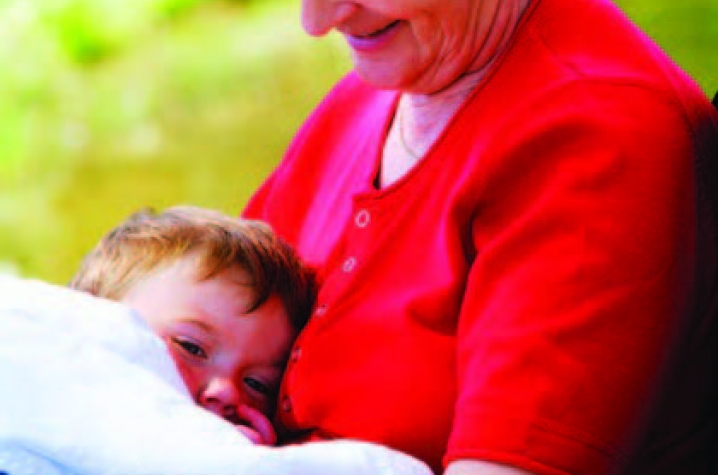UK Report Addresses Health Needs of Trauma-Exposed Grandfamilies
LEXINGTON, Ky. (May 7, 2014) - For centuries, American grandparents have participated in raising grandchildren. But contemporary problems, such as child maltreatment, exposure to substance abuse and the incarceration of a biological parent, are requiring more grandparents in Kentucky to assume the role of primary caregiver.
A breakthrough report by the University of Kentucky Center for Trauma and Children presents information about the health and well-being of Kentucky's grandfamilies, or families in which a grandparent serves as the primary caregiver in the absence of a biological parent.
Based on nearly 300 interviews collected from primary caregivers of grandfamilies living in both rural and urban settings across the Commonwealth, the report gathered information about types of childhood trauma exposure, pediatric symptoms and health services available to grandfamilies. The report also measured the health condition of grandparents raising grandchildren and the need for additional legal, financial and health care support for these modern families. The questionnaire was distributed through a network of kinship care groups and conferences across the state from March to December 2013.
Nationally, more than 42 percent of grandparents living with grandchildren function as the primary caregiver. More than 67,000 children in Kentucky are living with a grandparent, and more than half of those children are being raised by a grandparent in the absence of a biological parent. According to the report, substance abuse, child maltreatment and incarceration were the top three reasons children in the study lived with a grandparent. Incarceration accounted for a quarter of children living with grandparents while death of a biological parent accounted for 12 percent of children living with grandparents.
"We have a new group of caregivers trying to manage a new family configuration with children who are trauma-exposed," said Dr. Ginny Sprang, professor in the Department of Psychiatry and principal investigator for the report. "These grandparents are put in the position to parent children who have a special set of mental health needs. We really wanted to understand the experiences of these children coming into care, the levels of stress in the grandparents, and the level of functioning in these children and families."
Sprang said the report's findings indicated that many children in grandfamilies are coming from chaotic, abusive and unpredictable living situations. The report found 73 percent of children in participating grandfamilies had suffered from at least one traumatic experience. Sprang called attention to the 16 percent of children who reported four or more traumatic experiences. According to the benchmark Adverse Childhood Experiences Study, more than four traumatic experiences in childhood are strongly linked to a poor adult health and mental health outcomes and early mortality.
The report also highlighted the prevalence of symptoms and disorders in grandchildren. Forty-three percent of grandparents reported caring for a child with special mental health need, and more than 17 percent said their grandchild was diagnosed with a trauma-related disorder. In Eastern Kentucky, a region representing more than one-third of the surveyed population, grandfamilies reported that half of children required special mental health services and one-third showed symptoms of ADHD.
The report also revealed that grandparents heading these households are in poorer mental and physical health when compared with the general population. Many are overburdened with caring for young children, with 38 percent reporting raising children younger than the age of 5. More than half of grandparents in the study identified as a single caregiver. Grandparents reported having an average of at least two chronic illnesses.
"These grandparents are trying to manage the fallout from all the child's early experiences when they are also experiencing a decline of their own health and well-being," Sprang said.
Based on the findings of the report, researchers determined Kentucky's grandfamilies need more specialized services for traumatic stress in children, as well as enhanced legal, financial and health care resources for primary caregivers. Grandparents were least likely to receive child services for traumatic stress or abuse problems because the services were either too expensive, or not available in their community. Sprang said the report underlines a need to provide training for mental health professionals to work with the trauma-exposed children across Kentucky.
The study was conducted by Sprang, and colleagues Dr. Moon Choi, Dr. Jessica Eslinger and Adrienne Whitt-Woosley. The study was made possible in part by a grant from Eastern Kentucky Health Education and Welfare Fund.
MEDIA CONTACT: Elizabeth Adams; elizabethadams@uky.edu






